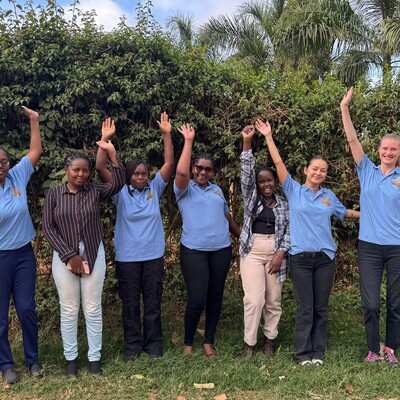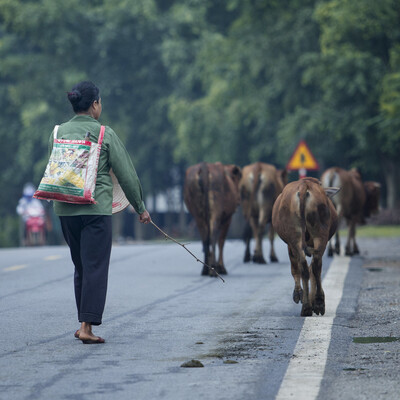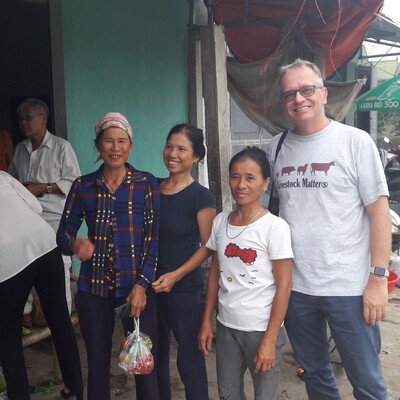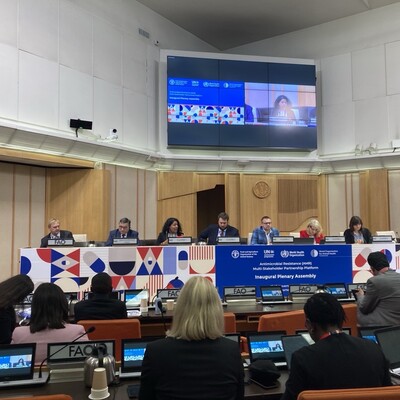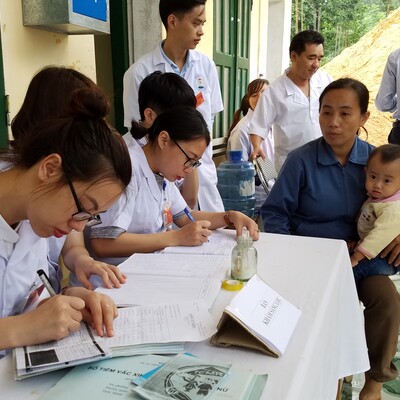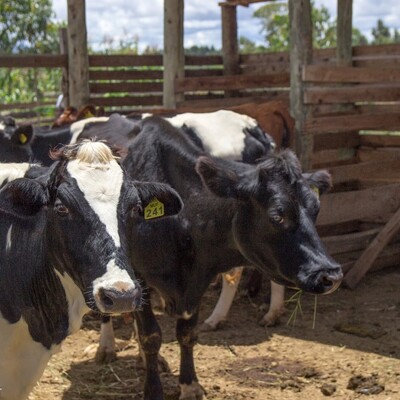
Norwegian Veterinary Institute and the International Livestock Research Institute to collaborate in One Health research in Africa
The Norwegian Veterinary Institute (NVI) and the International Livestock Research Institute (ILRI) have signed an agreement to strengthen collaboration in One Health research activities in Africa.
In its action plan on sustainable food systems, the Norwegian government has prioritized animal and fish health, and food safety under the One Health vision. This plan guides all Norwegian institutions to engage in active collaboration across the world to achieve the Sustainable Development Goals (SDGs) by 2030.
‘NVI is strongly committed to increasing its global activities in promoting healthy and sustainable food systems as prioritized by our government,’ said Carlos das Neves, director for research & internationalization. ‘To achieve this we need strong partnerships and ILRI is an absolute reference in the field of livestock health and food safety. Our institutions share a strong commitment to One Health, so I am happy we can finally formalize this collaboration,’ added das Neves.
ILRI’s newly established One Health Research, Education and Outreach Centre in Africa (OHRECA) is working to improve the health of humans, animals and ecosystems through capacity building, strengthening of local, regional and global networks; and provision of evidence-based policy advice on One Health in sub-Saharan Africa. Funded by the Federal Ministry for Economic Cooperation and Development of Germany (BMZ), the centre works in four areas: control of neglected tropical zoonotic diseases, emerging infectious diseases, food safety and informal markets, and prevention and control of antimicrobial resistance.
The collaboration with ILRI will increase NVI’s capacity in One Health and its preparedness in tackling emerging infections by expanding its work to projects in Africa. The collaboration will also add value to NVI’s engagement in development projects such as those now being established in cooperation with the Norwegian Agency for Development (NORAD) in the continent.
‘This collaboration helps achieve OHRECA’s goal of strengthening its One Health research work in Africa through new scientific partnerships,’ said Jimmy Smith, director general of ILRI. He added that ILRI’s agreement with the Norwegian Veterinary Institute exemplifies how the global research community can bring One Health into action to address the human health challenges confronting the global community today.’
Already, in line with the new agreement, NVI senior researcher Hannah Jørgensen will work at ILRI in Kenya for the next two years on a joint-appointment between the two institutions. During her stay in Kenya, Jørgensen will work in joint NVI-ILRI One Health projects in Africa such as milk safety and COVID-19 surveillance.
******
About ILRI
The International Livestock Research Institute (ILRI) is a non-profit institution helping people in low- and middle-income countries to improve their lives, livelihoods and lands through the animals that remain the backbone of small-scale agriculture and enterprise across the developing world. ILRI belongs to CGIAR, a global research-for-development partnership working for a food-secure future.
ILRI is co-hosted by Kenya and Ethiopia and works through a network of 14 regional and country offices and projects across Asia and sub-Saharan Africa.
About NVI
The Norwegian Veterinary Institute (NVI) is a national biomedical institute delivering research-based knowledge and contingency support in the fields of animal health, fish health and food safety. The aim of the Institute is to become Norway’s centre of preparedness for One Health.
The core activities of NVI comprise animal diagnostics, research, innovation, health monitoring, risk assessment, consulting and communication with users and the government. NVI is both a national and an international reference laboratory for animal diseases and foodborne diseases, and is involved in a wide range of international collaborative activities. NVI has 330 highly educated employees from more than 35 different nationalities.
Photo credit: Redrawn from Centers for Disease Control and Prevention







